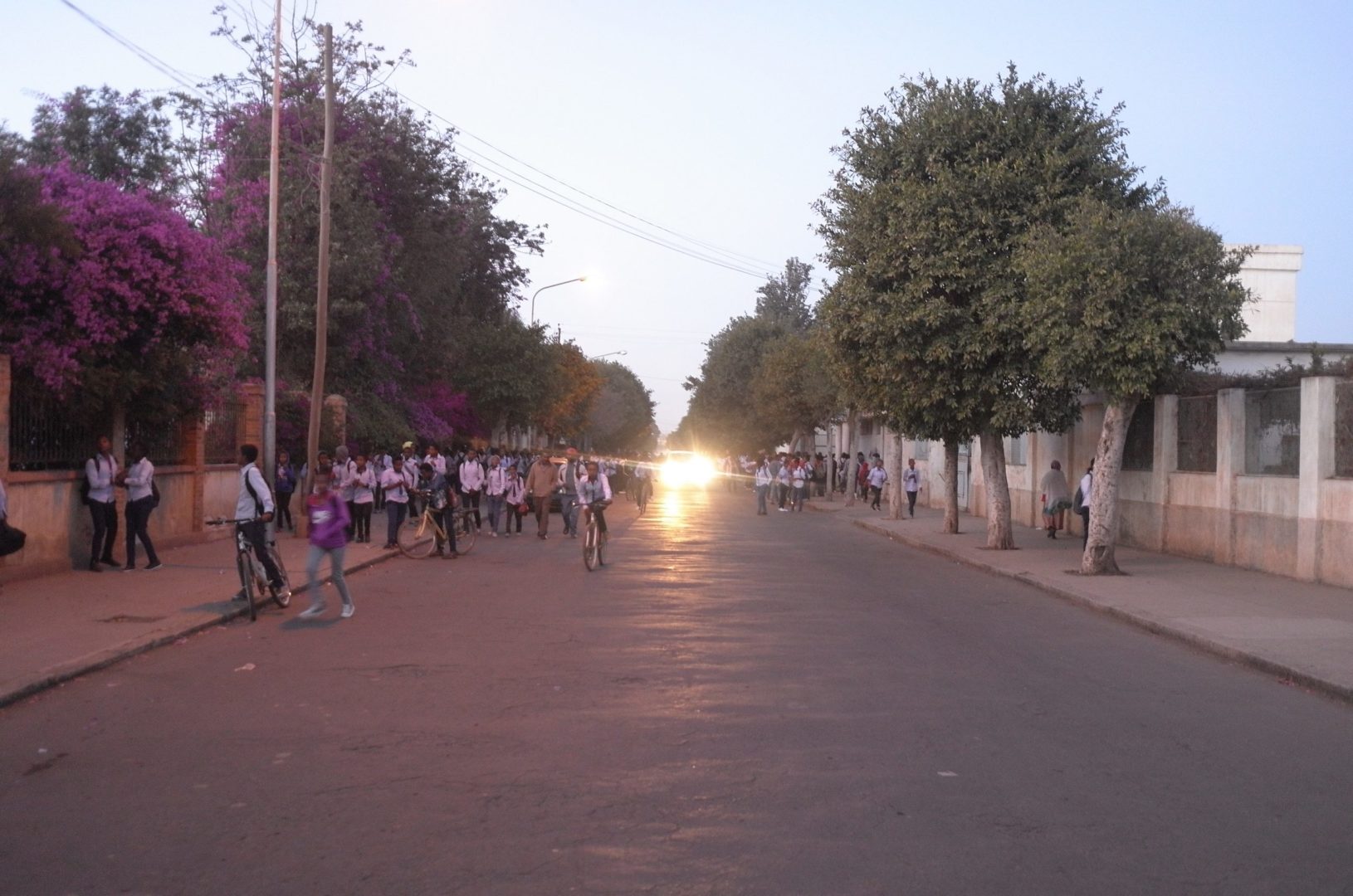31.03.2020
Betlehem Isaak and Meron Estefanos
Two Activists in the Struggle for Human Rights
Betlehem Isaak – Activist and Author @BetlehemDIsaak
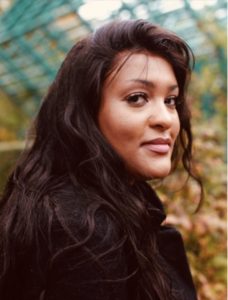
Bethlehem Isaak is the daughter of Swedish-Eritrean journalist and author Dawit Isaak. She spent the first seven years of her life in Asmara, surrounded by her family, her grandfather’s Italian delicatessen and her father’s books. As political tensions in Eritrea rise, the family considers moving to Gothenburg, Sweden. Dawit Isaak had already found refuge there in the late eighties. He obtained Swedish citizenship in 1992, but he was always drawn back home. He wanted to participate in the democratic development of his country. After independence in 1993, Dawit Isaak returns to Eritrea. He marries and he and his wife have three children – the twins Bethlehem and Yorun and the younger daughter Danait. Dawit works as a journalist and co-founds a popular daily newspaper, Setit. Bethlehem is eight years old when her father is arrested in Eritrea in 2001 and disappears without trace. Her mother returns to Sweden with her three children in 2002. Already as a teenager, Bethlehem publicly engaged herself in the fight for her father. She says she wants to be the voice of her father. Together with Esayas Isaak, Dawit’s brother, and other Swedish activists she has participated in countless panel discussions and protest actions. She also appears regularly on Swedish television and radio.
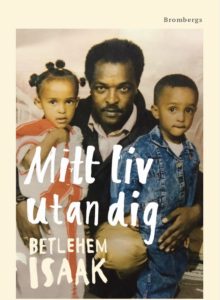
In her first book, Mitt liv utan dig (My life without you. Brombergs, 2020), which has just been published in Sweden, she describes her “double life” as a young immigrant in Sweden and as an activist fighting for her father and the liberation of Eritrea.
Mitt liv utan dig (My life without you). Brombergs, 2020, ISBN 9789178091133.
Auszug auf Schwedisch: https://www.expressen.se/kultur/qs/varfor-har-de-bundit-fast-hans-hander/
A few weeks ago a theatre play based on Bethlehem Isaak’s book had its premiere (review in Swedish).
“I have this faith in humanity and the power that we have together”
Interview with Betlehem Isaak by Susanne Berger
SB: Your first book has just been published (March 2020). It is called “My life without you” and in it you describe your experience of growing up without your father, Dawit Isaak. What do you want to convey in particular with this memoir?
BI: I wanted to write a book about the life of an immigrant woman in Sweden, from a child’s perspective. The book follows me from the age of four until today. I am 26 years old now. And I wanted to tell my story from both an Eritrean and a Swedish perspective. I am writing about racism, what it is like to grow up as a young black woman in a huge white Nordic society. And of course I write about my father and the influence he has and always has had on my life. The message of my book is simple. We all have a lot in common, many people in the world were once immigrants and we know very well the difficulties involved. But this is a book written from a young person’s perspective. I hope it leads to the insight that despite all our individual differences, we are all ultimately the same.
SB: Your father has been in prison for 18 years now. You say you still have hope. On what do you base that hope?
BI: My hope just comes from myself. I have this faith in humanity and the power that we have together. My friends, the books I read, and of course my parents, even though one of them is not here. I carry the memory of my father with me all the time.
SB: You say you don’t hate anyone. You want people to talk to each other. But you say “Do something!” So you feel that there has to be more commitment, that there is a lack of determination to act, not only from the official side, but also from individuals, and from human rights organizations and NGOs. How exactly should they get involved? What do you think is missing?
BI: I want people to try to understand Eritrea and the Eritrean government. I want us to have diplomatic relations. I want people to somehow build a relationship with the Eritrean government, with Eritreans, and with the diaspora. We, as Eritreans, have to talk to each other. And other people have to stop talking about us and start talking to us. Whether in Eritrea or here. So I always encourage people to travel to Eritrea and see what we can do. Can we talk about it? Even if it is very difficult and people have been through a lot, can we talk about it? And it is like this everywhere here in Sweden where I get involved. I try to tell people: “We have to talk about racism. Can we just meet somewhere and talk about it?” Because if we stand here and they stay there, then we just scream at each other. Then they can’t hear us and we can’t hear them.
SB : So you mean that if you talk to supporters of the regime, get in touch with them, they could change their behavior?
BI: Yes, hopefully and of course I will not do that alone. Other Eritreans have to do it together with me, and the international community has to get involved in the same way.
SB: How do you approach this in concrete terms, in your life and with your book? Do you organize workshops or how do you seek an exchange with other Eritreans?
BI: I travel a lot to meet other Eritreans and also politicians to talk to them about the need to establish a dialogue because the sanctions (against Eritrea) didn’t work. Everything else has not worked. We have to try something that we have never tried before.
SB: And how do you respond to critics who say that you are supporting the regime?
BI: Okay, then please let me know if you can do better. Just call me, get in touch.
SB: To talk to each other?
BI: Yes, because I think people say that just out of anger, but I should be the angriest. I haven’t seen my father in 18 years.
Betlehem about her Vater Dawit Isaak [3 Clips]
Betlehem about her father Dawit Isaak / family background I
https://www.youtube.com/watch?v=cwVq-SiJkNw&feature=youtu.be
Betlehem about her father Dawit Isaak / family background II
https://www.youtube.com/watch?v=SnLCh2U_aD8&feature=youtu.be
Betlehem about her father Dawit Isaak / family background III
https://www.youtube.com/watch?v=-uC60wNPHOM&feature=youtu.be
“It’s ma duty to fight”
https://www.youtube.com/watch?v=HU_qhaexcX0&feature=youtu.be
The focus on dialogue – “It’s in our DNA”
https://www.youtube.com/watch?v=WXObenh3qVM&feature=youtu.be
Attitude towards the Eritrean Regime
https://www.youtube.com/watch?v=mLquhHrVLsg&feature=youtu.be
(Buxus Stiftung – excerpts from the interview with Bethlehem Isaak recorded in Stockholm on 11 December 2019.)
“Between Life and Death”
Meron Estefanos – Journalist and Activist @meronina
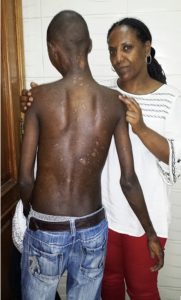
Meron Estefanos is a well-known human rights activist, journalist and radio commentator for Radio Erena. She is co-founder of the International Commission on Eritrean Refugees (ICER) in Stockholm, Sweden. In 2011 she was awarded the Dawit Isaak Prize. For years Estefanos has documented the torture and cruel mistreatment of Eritrean refugees by human traffickers in the Sinai. In 2012, she co-authored a report on these extreme abuses, including rape, burns, amputation of limbs and even organ theft.
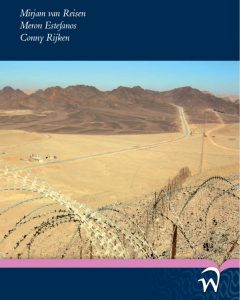
Mirjam van Reisen, Meron Estefanos, Conny Rijken,
Human Trafficking in the Sinai: Refugees between life and death.
Tilburg University: Wolf Legal Publishers,
2012
For further reading and discussion
Tweet von Meron Estefanos: https://twitter.com/meronina/status/1074944986079219715?s=21
ERITREAN ANGUISH: https://www.dw.com/en/anguish-for-eritrean-refugee-over-daughters-sinai-fate/a-16870454
“Looking Torturers in the Eye: A Conversation with Human Rights Activist Meron Estefanos”
Rachel Sales conducted an interview with Meron Estefanos for Pink Pangea about her dangerous work for the tortured refugees from Eritrea
Interview: Susanne Berger (Washington D.C., USA)
Kamera: Jakob Gatzka
Contact: info@fritz-bauer-blog.de




